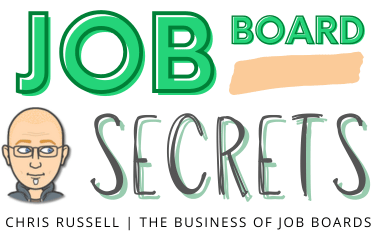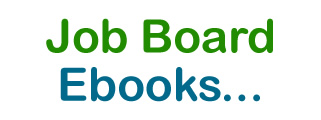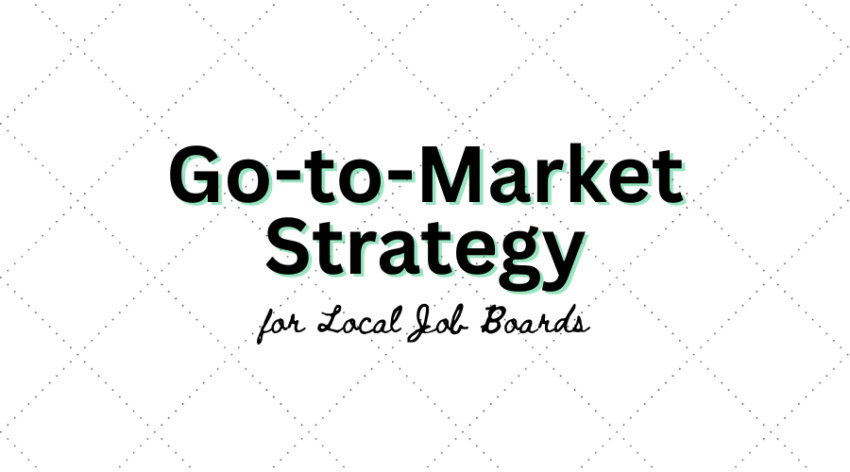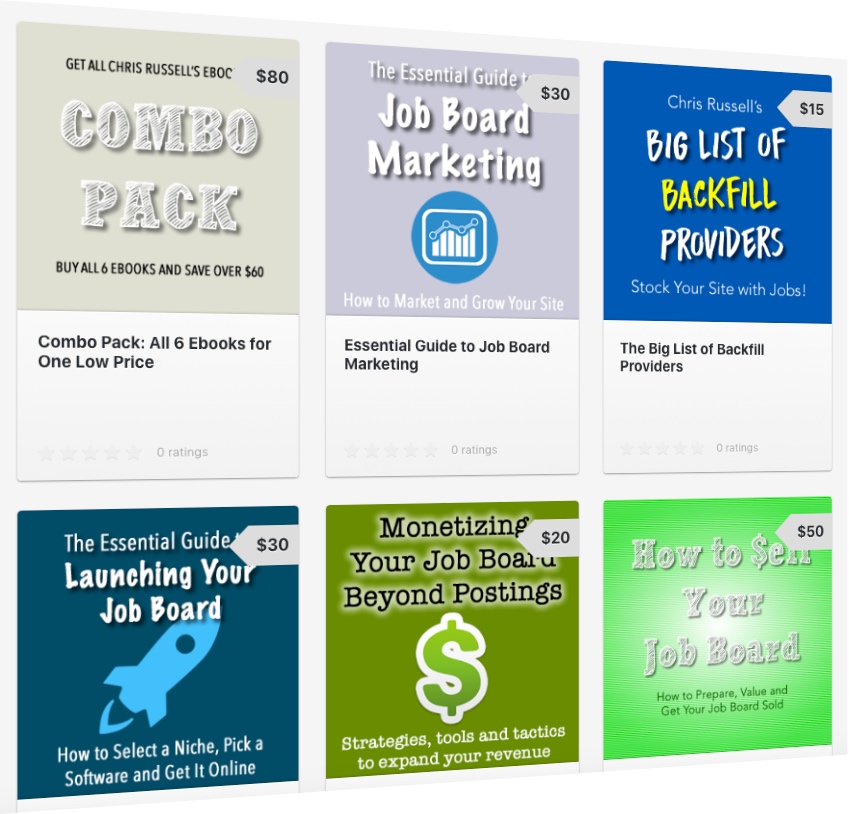Launching a niche job board for a specific city or region is a fantastic idea because it allows you to go deep rather than wide, building a true community asset. The key is to think of yourself not as a tech company, but as a community builder whose primary tool is a job board.
Here is a comprehensive go-to-market strategy focusing on community and offline events. Let it serve as a guide for getting started.
Phase 1: Pre-Launch (The Foundation – 3 Months Before Launch)
Your goal here is to solve the classic “chicken and egg” problem before you even launch. You can’t attract job seekers without jobs, and you can’t attract employers without candidates.
1. Hyper-Define Your Niche & Audience:
- Niche: “Tech jobs in Boston” is good. “FinTech jobs in Boston” is better. “Early-stage startup FinTech jobs in Boston” is best. The more specific you are, the easier it is to target your first 100 users and companies.
- Personas: Create detailed personas for your ideal candidate (e.g., “Maria, a mid-level UX designer with 5 years of experience”) and your ideal employer (e.g., “David, the Head of HR at a 50-person SaaS company”). This will guide all your messaging and event planning.
2. Build Your “First 100” True Fans (Pre-Launch Community):
This is your most critical pre-launch activity.
- Create a “Coming Soon” Landing Page: This isn’t just a signup form. It should clearly state your mission: “We’re building a dedicated space for [Niche] professionals to find their next great opportunity right here in [City].” Offer a compelling reason to sign up, like:
- “Be the first to see jobs from top [City] companies.”
- “Get an invite to our exclusive launch party.”
- Offline “Founder’s Circle” Meetups: Before you have a product, host a series of small, curated events.
- Format: Invite 5-10 influential people from your niche for coffee or a beer. These could be senior professionals, well-known recruiters, or startup founders.
- The Ask: Don’t sell them anything. Ask for their advice. “I’m building this for people like you. What are your biggest hiring frustrations? What would make a local job board indispensable?” This makes them feel like co-creators and builds powerful early evangelists.
- Goal: Build relationships, validate your idea, and get commitments from a few companies to be your “Founding Employers” who will post jobs for free at launch.
3. Content Seeding & Early SEO:
- Start a Blog/Newsletter: Begin writing content that is valuable to your target audience now. Don’t wait for the launch.
- Topics: “Top 10 [Niche] Companies to Watch in [City] in 2026,” “Salary Guide for [Job Role] in [Region],” an interview series with local industry leaders (your Founder’s Circle members are perfect for this).
- Social Media: Create your LinkedIn and other relevant social media profiles. Share your content and start engaging in conversations happening in local professional groups.
Phase 2: Launch (The Ignition – Month 0)
Your goal is to make a coordinated splash, leveraging the momentum you’ve built.
1. Ensure a “Seeded” Platform:
- Employers: You must launch with a critical mass of high-quality jobs. Aim for at least 50-100 listings. Use the connections from your “Founder’s Circle” and offer an extended free trial period for the first 20 companies to sign up. If needed, you can (ethically) aggregate publicly listed jobs, always linking back to the original source, to bolster numbers initially.
- Candidates: You should have an email list of several hundred interested local professionals from your pre-launch efforts.
2. The Marquee Launch Event:
This is the centerpiece of your offline strategy. Don’t just throw a party; create an event with real value.
- Format: A “State of the [Niche] Industry in [City]” panel discussion.
- Panelists: Invite 3-4 respected local leaders (again, tap your Founder’s Circle). One could be a CEO, one a top recruiter, one a venture capitalist.
- Venue: Partner with a well-known local co-working space, university, or even one of your founding companies. This adds credibility and can reduce costs.
- Sponsors: Get a local brewery, coffee shop, or restaurant to sponsor drinks and snacks. This roots you deeper in the local fabric.
- Promotion: This event is the reason you email your pre-launch list. “We’re Live! And to celebrate, you’re invited to…” Promote it through your panelists’ networks and local event calendars.
- The “Ask” at the Event: Have a short 5-minute presentation about your new job board. Explain the mission. Have QR codes that link directly to the site. Encourage people to sign up and create a profile right there.
3. Coordinated Digital Push:
- Email your entire list announcing the launch and the live jobs.
- Post across all your social channels.
- Share your board on relevant local subreddits (e.g., r/bostonjobs), LinkedIn Groups, and Slack communities.
- Run hyper-targeted ads on platforms like LinkedIn, targeting your specific niche and location (e.g., “Job Title: Software Engineer, Location: Austin, TX”).
Phase 3: Post-Launch (Growth & Community Flywheel)
Your goal is to become the undeniable center of gravity for your professional niche in your city.
1. Consistent Offline Event Cadence:
Don’t let the launch be your only event. Create a rhythm of recurring events that serve your community.
- Monthly Networking Mixers: A simple, casual happy hour at a different local bar or company office each month. Low effort, high connection.
- Quarterly Skill-Building Workshops: Partner with local experts to host workshops on topics like “Portfolio Reviews for Designers,” “Technical Interview Prep,” or “Mastering Salary Negotiation.” These are high-value events you can charge a small fee for.
- “Company Spotlight” Evenings: Once a month, partner with a hiring company. They host, provide a tour of their office, and have their team leads give short talks on their culture and technology. You bring the audience of potential candidates. It’s a win-win.
2. Content as a Community Tool:
- Event Recaps: Turn every event into a blog post, photo gallery, or series of social media posts. Tag attendees to expand your reach.
- Success Stories: When someone gets a job via your board, interview both the candidate and the hiring manager. Turn it into a case study. This is your most powerful marketing material.
- Local Salary Report: Once you have enough data, anonymously aggregate and publish a “State of [Niche] Salaries in [City]” report. This is an incredibly valuable asset that will generate organic traffic and press.
3. Build Strategic Partnerships:
You cannot do this alone.
- Educational Institutions: Partner with local universities and coding bootcamps to become their official career partner for your niche.
- Professional Organizations: Work with local chapters of groups like AIGA (for designers) or IEEE (for engineers). Offer their members a discount on job postings or event tickets.
- Local Media: Build relationships with local business journalists and bloggers. Feed them stories and data from your platform.
- Economic Development Agencies: Connect with your city or region’s economic development office. They are always looking to promote local talent and companies, and you can be a valuable partner.
By focusing on building a genuine, helpful community first, the job board becomes the natural, trusted platform for that community to connect professionally. You’re not just another website; you’re the host of the party where everyone in your industry wants to be.



